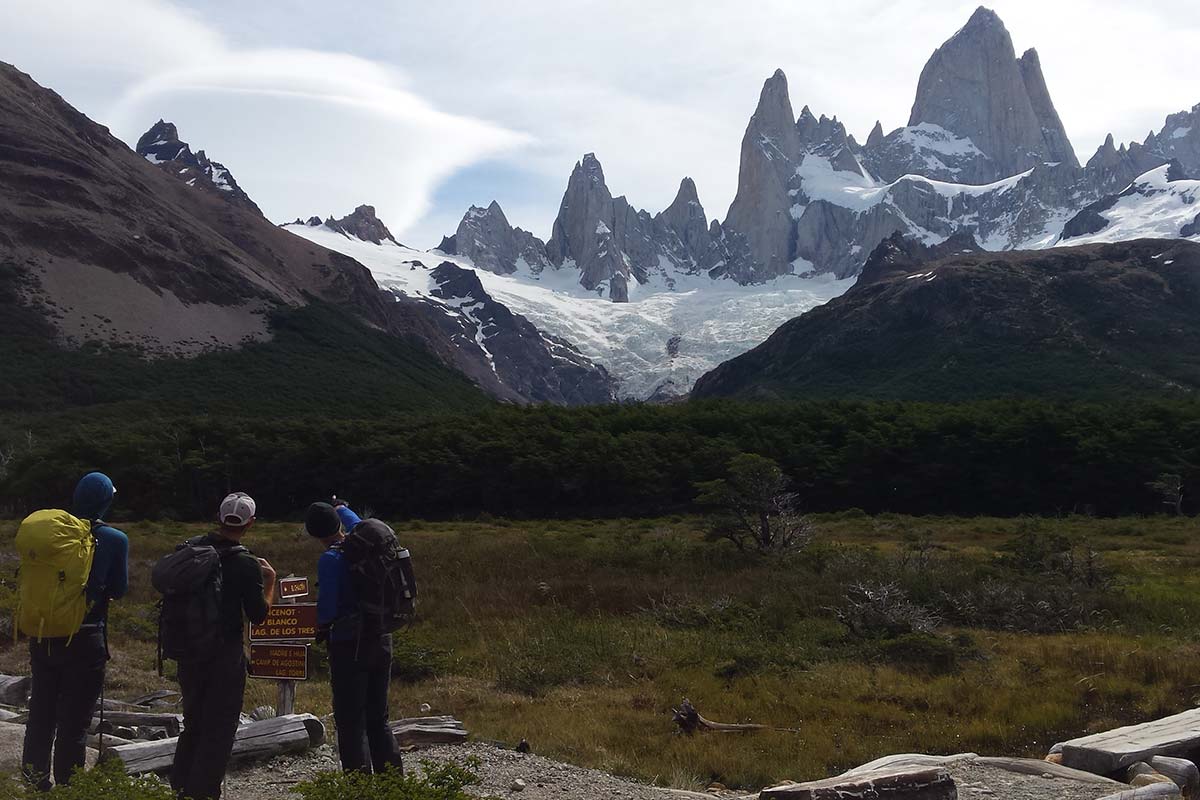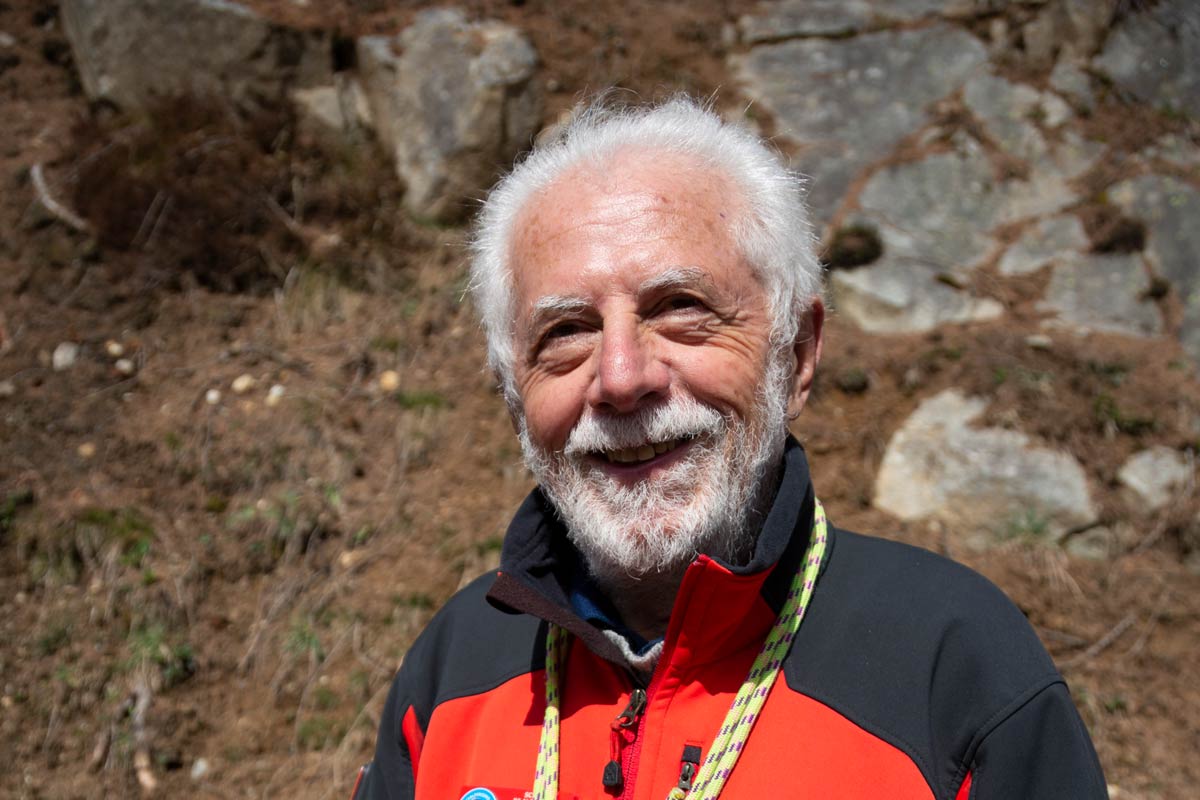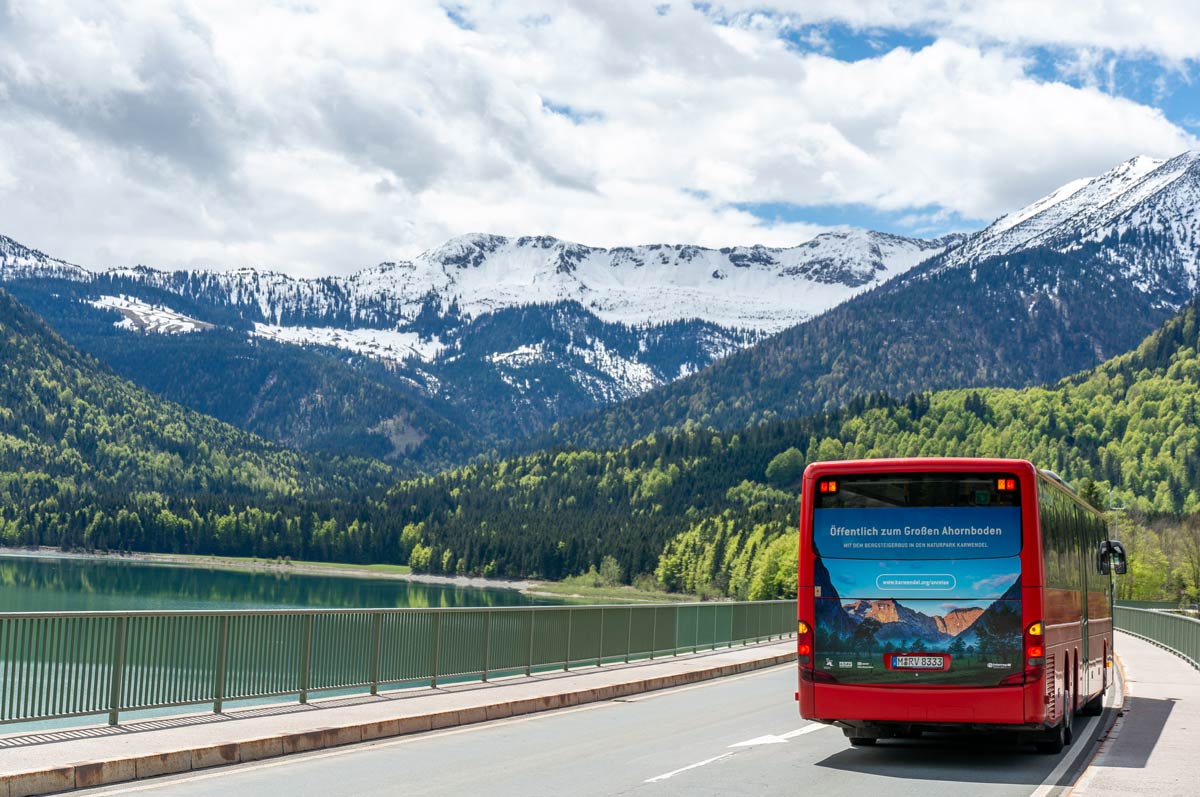This article forms part of a series created by the UIAA – International Mountaineering & Climbing Federation – for International Mountain Day (IMD), 11 December. An overview article about the UIAA & IMD can be found here.
For IMD, representatives from five MPA projects have provided information on the progress of their projects, the importance of biodiversity – the theme of this year’s IMD – and the impact of Covid-19.
Patagonia Waste Management
Organisation: Acceso PanAm
Location: Argentina
MPA nominated edition(s): 2017 and 2018
Patagonia Waste Management aims to discover simple, cost effective inexpensive solutions to the management of human waste in Los Glaciares National Park’s Northern Zone, famous for the Chaltén Massif, in advance basecamps in Patagonia. The focus is on areas that are remote, have no septic systems or transport via helicopter sling loads.
Its longer term, permanent goal is to provide a healthier human experience in these great mountains as well as diminishing the impact of human activities in the environment by proposing a responsible way to dispose of human waste.
Progress Report since 2018
The initial three-year pilot project proved a success, with the following achievements:
- A strong synergy and relationship with the national park cooperating with the project – Laguna Capri, Los Glaciares National Park, El Chaltén, Argentina
- Working with the Park to study the benefits of urine diversion and vermi-composting.
- Connecting Park management with the top experts in their field. They now actively consult directly.
- The Park is on the way to approve the implementation a phased installation of a new toilet, that utilises the same science, principles and company that Acceso PanAm introduced in its pilot study with some adjustments learned along the way (the project’s pilot toilet worked for a season and a half – about half of the pilot study – and is currently not operating. This is due to a number of factors, which were unforeseen. These unpredicted problems (principally, ease of maintenance, remote location and cost) highlight the importance of a pilot program. Acceso PanAm continues taking what they have learned from the pilot programme and are applying it to the full project.
- The Park has chosen to continue work with Acceso PanAm to project manage and support implementation.
- Acceso PanAm has engaged local stakeholders in the area to ensure the project also meets the needs of the community

Acceso PanAm on biodiversity & International Mountain Day
How and why is preserving biodiversity a key part of your project?
Managing human waste impact in wild places helps lessen our impact. With less impact we can help the biodiversity that exists in the area to flourish and to have the fewest negative changes to their process as possible.
What specific impact has Covid-19 had on your project?
It has meant no travel in 2020, with Steffan Gregory, Project Manager, being in the USA and Acceso PanAm director Kika Bradford in Brazil and the Park’s stakeholders in Argentina. Remote work and management is rooted in this project and won’t stop the progress in implementing the next phases, although Covid-19 is still felt and doesn’t make things easier.
Do you have plans to celebrate International Mountain Day on 11 December? And how?
Accesso PanAm will be celebrating by hosting a Montaña Limpa event on that day to help take care of the places we love to climb. More information can be found at: http://accesopanam.org/montana-limpia/
Information courtesy of Steffan Gregory, Project Manager, and Kika Bradford, Acceso PanAm director
List of other profiled projects:
Study and Monitoring of Chachacomani Glacier, Bolivia
John Muir Trust, England
Save the Barun, Nepal
SWAT Project, Pakistan
FURTHER READING
The UIAA has also recently commenced a series profiling past Mountain Protection Award winners. Following recent profiles on the progress made by Mountain Wilderness France (2016) and AlpineLearning Project Weeks (2019) – the recent focus turned to 2017 winner Mount Everest Biogas Project (MEBP).
PROJECT PARTNER
Bally is a Swiss luxury brand established in 1851, with a rich heritage in shoemaking, and a longstanding relationship to architecture, arts and the environment. Today, the brand offers unique designs across shoes, accessories and ready-to-wear, driven by a dedication to craftsmanship and a contemporary aesthetic. Bally has over 300 retail stores and 500 multi-brand points of sale that span across 66 countries worldwide, including a global e-commerce platform serving 34 countries. For more information, please visit Bally.com




